Corpus Christi Blog
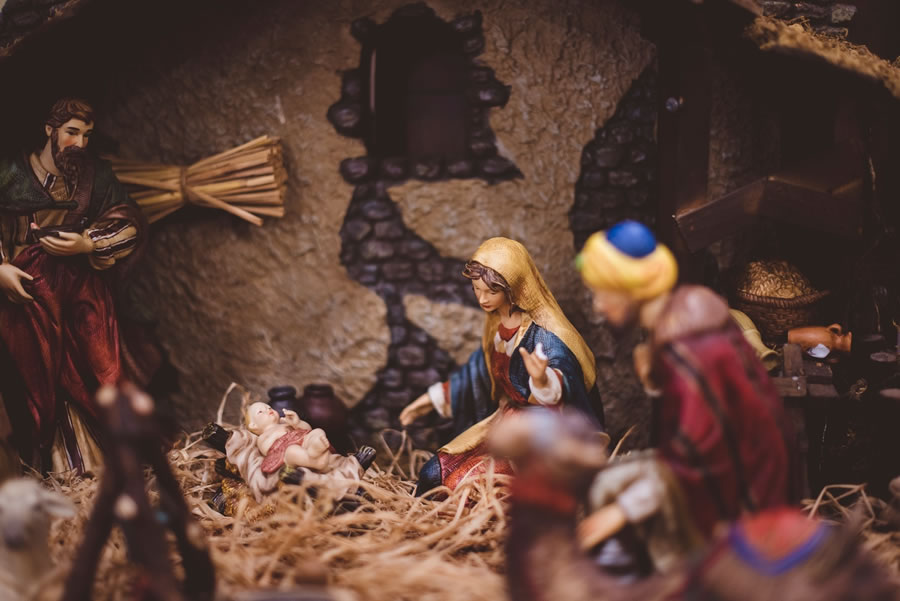
How can we be like the Holy Family?
12-27-2020Weekly ReflectionJen Arnold, M.A. in Theology and CatecheticsToday, as we celebrate the feast of the Holy Family, we will take a look at the gift God has given us in our own families and how they are reflections of God’s love and inner life.
In 2018, our very own Bishop Olmsted wrote a letter to his flock called, Complete my Joy: An Apostolic Exhortation to the Husbands and Wives, Mothers and Fathers of the Diocese of Phoenix. He wanted to highlight the unique role the family unit has in God’s redemptive plan and to offer us encouragement in our family vacations. Due to the nature of family life, which is rooted in love and communal life, he posited that “Family is likely where we will feel the deepest joys as well as the deepest pain.” (#2). Whatever ups and downs we experience in our family life, they can all be used for our ultimate good and contribute to our own personal healing and the mission of our family in the world overall.
The first point to make is that families are a reflection of the Divine Trinity. God is three persons in one God-Father, Son, and Holy Spirit. This a communal union that exists only in perfect love as the three persons give and receive continual love between one another. Humans were made in the image and likeness of God and were therefore created for love. We are meant to love and be loved and our love produces fruit, both in the procreative act of bringing about children and by the light our love puts out into the world as it reveals God’s love. “As the concrete image of God to the world, every family – your family – is, by its nature, a communion of love and life.” (#10).
READ MORE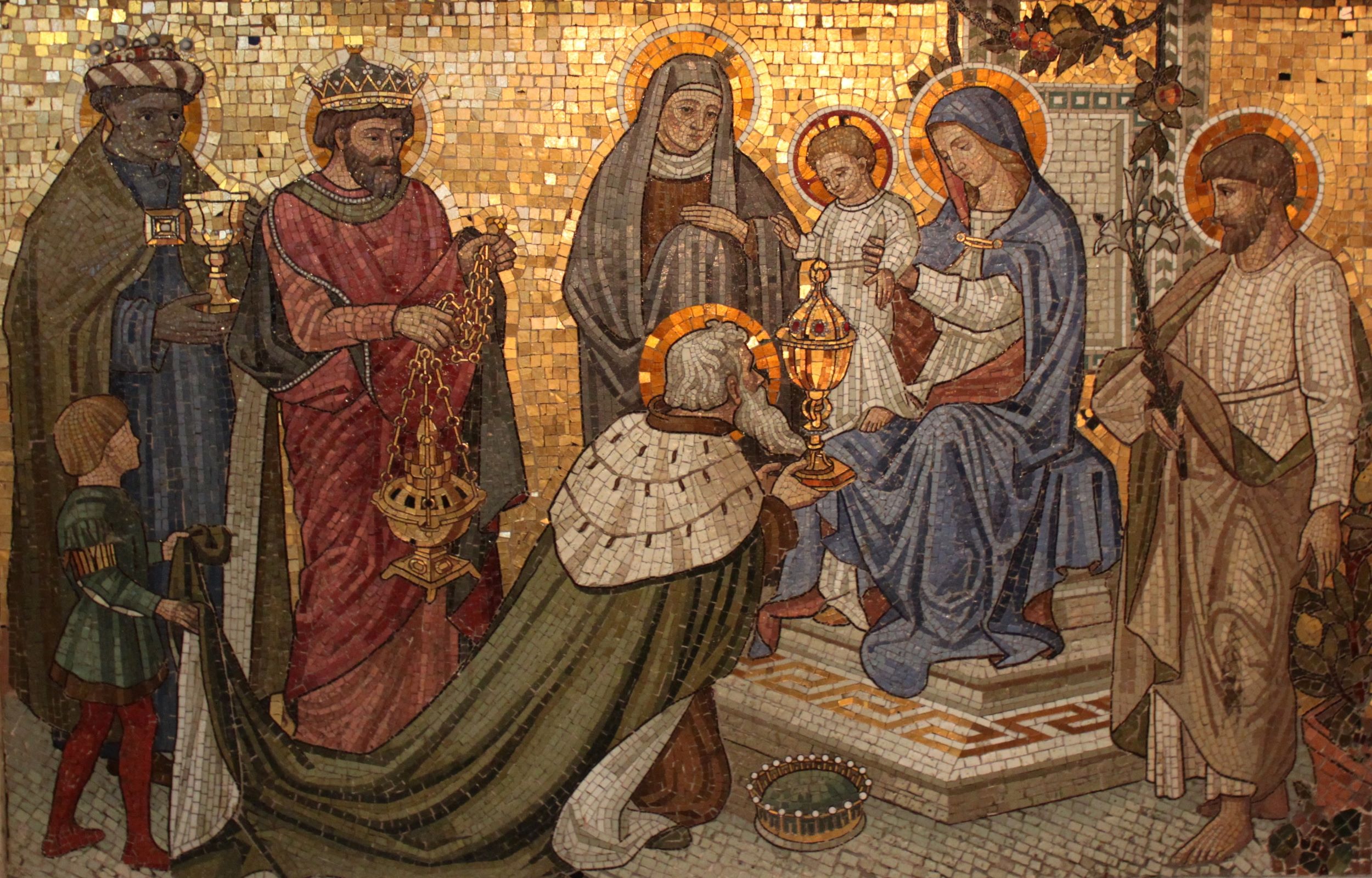
O, Come Let Us Adore Him (Part 4 of 4)
12-19-2020Weekly ReflectionJen Arnold, M.A. in Theology and CatecheticsAs we enter the fourth week of Advent, we will look at the final group of people called to adore the infant Christ, the magi. There is a lot of mystery surrounding the magi. Who they were, where they came from, and what their belief system was, is not explicitly explained in Scripture or taught by the Magisterium. In the Acts of the Apostles, there is a reference to a magus (the Latin singular of magi) named, Simon, who was a practitioner of magic. However, this could apply to many cultures and philosophical belief systems. There isn’t even a clear indication of how many there were, but early Church fathers say three, which is likely influenced by the three gifts Jesus received – gold, frankincense, and myrrh. Tradition gives them the names Gaspar, Melchior, and Balthasar.
Despite all the mystery surrounding the magi, we don’t need any more information about them than what we have, to understand who and what they represent in the context of coming to adore Jesus as the Savior of the World. Matthew tells us they were “wise” and when they saw the star announcing His birth, they followed it to go and worship Him (Mt. 2:1-2). In Jesus of Nazareth: The Infancy Narratives, Pope Benedict XVI tells us what it means to be a wise man who sets out to find Jesus. To be wise is to seek TRUTH – truth in philosophy, truth in science, and truth in religion. It is to step out of your own narrow perspective of truth as you have defined or accepted it and to seek truth as it actually is. To be wise is to seek the fullness of truth and understanding. Benedict also states that the magi would not have set out to seek Jesus had they not been a “people of inner unrest, people of hope, people on the lookout for the true star of salvation.” In other words, had they been satisfied with their own idea of truth and spiritual practices, they would have had no inner pull or desire to seek out the Newborn King. Think of all the people in your life who always seem to be seeking more. The Catechism affirms this, telling us, “The desire of God is written in the human heart because man is created by God and for God, and God never ceases to draw man to himself. Only in God will he find the truth and happiness he never stops searching for.” (CCC #27). In other words, the soul is wired to seek out the truth and will never truly rest until it rests in God. The magi were wise, in that they were willing to humble themselves to receive and adore the real truth, as opposed to continuing to seek it in things that contained but a sliver of truth.
READ MORE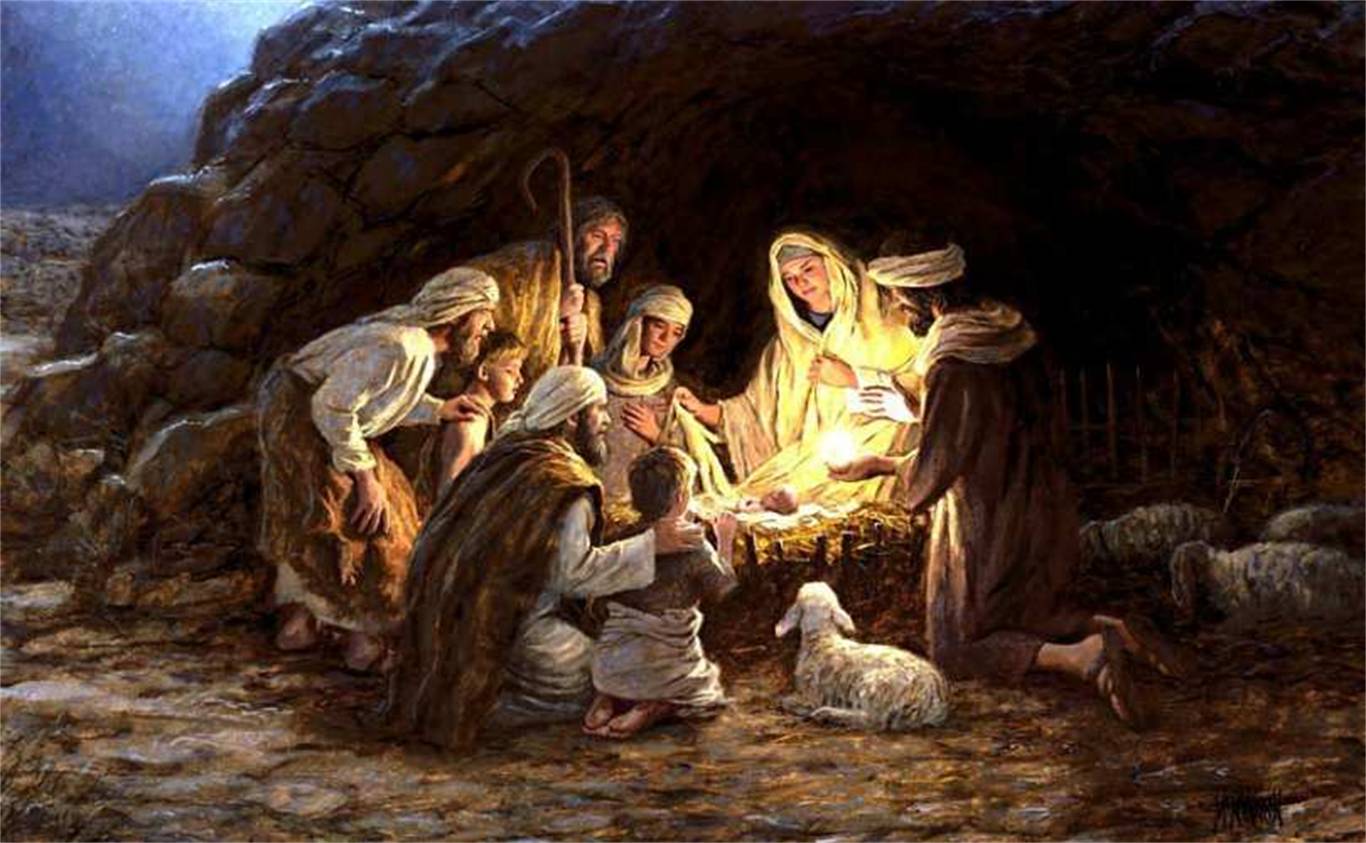
O, Come Let Us Adore Him (Part 3 of 4)
12-13-2020Weekly ReflectionJen Arnold, M.A. in Theology and CatecheticsThis week we will look at the third group that was invited to come adore the infant Jesus in the flesh – the shepherds. The angels, who had already existed in a state of perpetual adoration of God, rushed out to joyfully proclaim the birth of Jesus to the shepherds in the fields. I find that the shepherds are the most easily relatable characters in the nativity story, in terms of their coming to adore Jesus. Sometimes it can be more difficult to identify with Mary, Joseph, and the angels because they were all fittingly endowed with spiritual gifts that the rest of us simply are not. However, the shepherds, the simple workers in the field, are more representative of us ordinary human beings.
READ MORE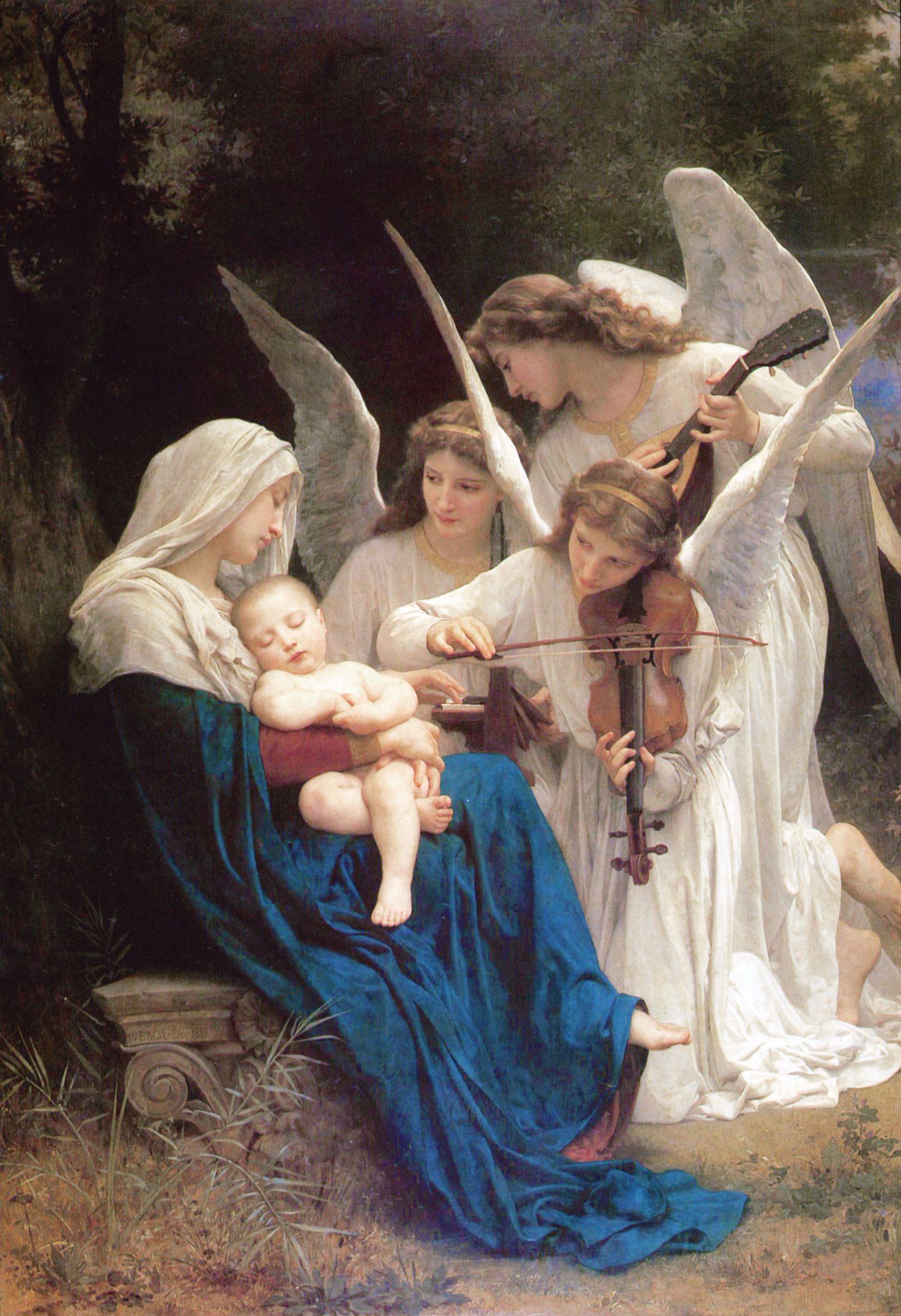
O, Come Let Us Adore Him (Part 2 of 4)
12-06-2020Weekly ReflectionJen Arnold, M.A. in Theology and CatecheticsLast week, we reflected on what it meant for Jesus’ parents to adore Him, not only as their Son, but also as their Lord, and how we are invited into that intimate familial love and adoration of Jesus. This week we’ll look at what it means to adore Jesus from the perspective of another group of beings, the angels. Earlier this year I wrote a piece about the nine choirs of angels and their various roles in the adoration of God and their service in growing His kingdom. If you missed that catechesis and would like an in-depth look at angels, you can find it on our parish website blog, dated June 28, 2020. For this reflection, however, it is enough to know that angels have deep knowledge and understanding of who God is, and as a result, remain in constant adoration of God.
Our guardian angels have been working our entire lives to helping guide us toward God and away from the temptation of sin – whether we listen or not! Imagine their rejoicing when the time came for the Savior of the World to be born in human flesh as the antidote to our ongoing corruption. For all of the time, they have had direct knowledge of the goodness of God, and now, we too could have a heightened and more advanced knowledge of that goodness as well. The honor given to St. Gabriel the Archangel to announce to Mary that she would conceive and bear God’s Son must have been a completely humbling experience, but more importantly, it was an act of adoration through obedience. You see, St. Gabriel adores God so deeply, that it would compel him from the very depths of his being to agree to announce the coming of Jesus to the people of the world so that they could adore Him as he does. We can imitate St. Gabriel and understand that our obedience to God’s will is an act of adoration and that by adoring Him through our words and actions, we are announcing His ever-presence in our world.
On the night of Jesus’ birth, there were also the angels who announced it to the shepherds in the field (more on the shepherds next week). Read this verse from Luke, Chapter 2, and try to imagine the scene:
READ MORE
O, Come Let Us Adore Him (Part 1 of 4)
11-26-2020Weekly ReflectionJen Arnold, M.A. in Theology and CatecheticsO, come let us adore Him…
This Advent we will spend each Sunday reflecting a bit on what it means to adore Jesus in the flesh by exploring the Nativity through the eyes of four different groups of people who all came to adore Jesus at His birth.
The first two people to have the opportunity to adore the baby Jesus were His parents, Joseph and Mary. Imagine the quiet, still night on which He was born. Having travelled to Bethlehem for the census, the Holy Family was far away from their home and all the comforts within it. There were no comfortable rooms available for them in town and they were left to welcome their newborn baby in a stable amongst animals. The Savior of the world came into the world amidst the humblest of circumstances. What Joseph, Mary, and Jesus did have was each other, bound by an unmatched familial love for one another, which would transcend any and all circumstances, no matter how challenging they might seem. Although perhaps not the most comfortable arrangements, one thing the stable did offer them was the privacy to bask in that love together, alone as a family.
READ MORE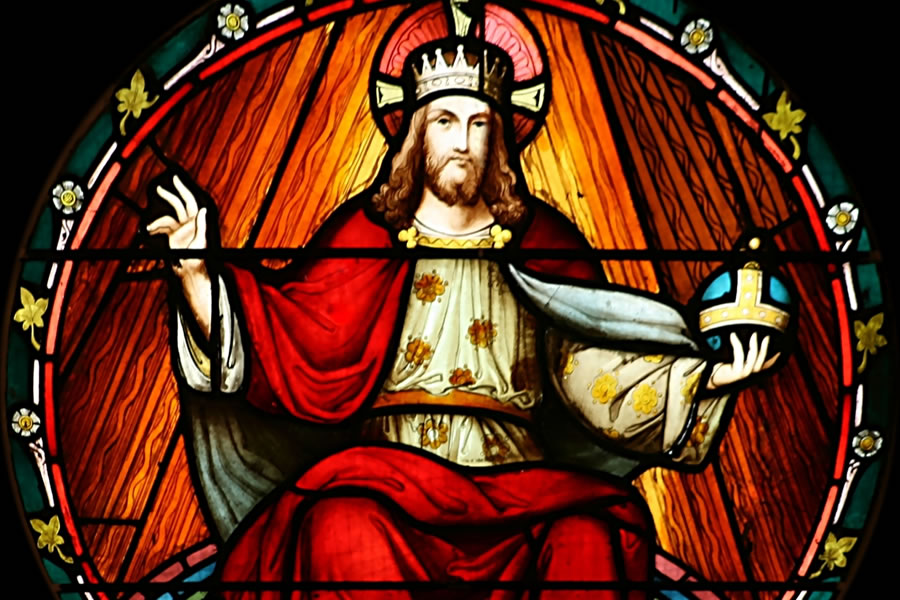
Christ the King
11-22-2020Weekly ReflectionJen Arnold, M.A. in Theology and CatecheticsThis Sunday we celebrate the Solemnity of Our Lord Jesus Christ, King of the Universe. This feast day was first established by Pope Pius XI in 1925 in response to the secularism he saw creeping into the world as more and more people began to reject having Jesus at the center of their lives. He stated that unless the Empire of the Lord was restored, there would be no peace and harmony between individuals or nations. In preparation for this week’s reflection, I read Pope Pius’ encyclical Quas Primas, in which he officially established the feast. As well as being a beautiful document, it also seems timelier today than ever before, which we will get into a little later. Before I dive into Pope Pius’ thoughts on the Kingship of Jesus, I will clear up a couple of historical details. In Quas Primas, Pope Pius proclaims the feast to take place on the last Sunday of October to precede All Saints Day. In 1969, Pope Paul VI moved the feast to the last Sunday in Ordinary Time, right before Advent, because he thought it more fitting to close out the year focusing on Christ’s dominion. Secondly, when Pope Pius originally established the feast, he called it the Feast of Christ the King. When Pope Paul changed the day of the celebration, he added “of the Universe” to emphasize the depth and breadth of the Kingdom of God. Both popes’ contributions to this feast have led to how we continue to celebrate this feast today.
READ MORE
Everything is Grace
11-15-2020Weekly ReflectionJen Arnold, M.A. in Theology and CatecheticsThere is a very simple, yet very profound and beautiful quote by St. Thérèse of Lisieux: “Everything is grace.” Everything is indeed grace and we will unpack what that means practically for us.
The Catechism of the Catholic Church defines grace like this: “Grace is favor, the free and undeserved help that God gives us to respond to his call to become children of God, adoptive sons, partakers of the divine nature and eternal life. Grace is a participation in the life of God.” (CCC #1996-1997, emphasis added.) The Catechism further differentiates between habitual grace and actual graces saying, “Habitual grace, the permanent disposition to live and act in keeping with God’s call, is distinguished from actual graces which refer to God’s interventions, whether at the beginning of conversion or in the course of the work of sanctification.” (CCC #2000, emphasis added.)
Starting at the beginning of this definition of grace, we see that the gift is free and undeserved. We currently live in a culture where people tell themselves they deserve to have anything they want, whenever they want, simply because they want it or think they have earned it in some way. So, to hear that God is giving us a free and undeserved gift might sound rather shocking to the modern ear. The truth is, that due to our sinful nature we don’t actually deserve this gift of grace that God freely offers us. The sins that we commit every single day are the same sins that nailed Jesus to His cross for our sake (another freely given and undeserved gift) which, by our human standards, is a pretty unforgivable thing to do. By offering us this undeserved gift of grace, God is demonstrating His unconditional love for us and His deep desire for us to return that love to Him.
The second part of the definition says that the gift of grace allows us to participate in the life of God, which is Trinitarian and thus includes the life of the Father, the Son, and the Holy Spirit. It means we can be yoked into the family of God and draw from that wellspring of familial love, affection, and assistance. It also means that every single human experience we could ever have can be yoked to every human experience Jesus ever had. Then, in each of these moments, we can tie in the third part of the definition; we can see how God intervenes for us and works with us and for us in everything we experience.
READ MORE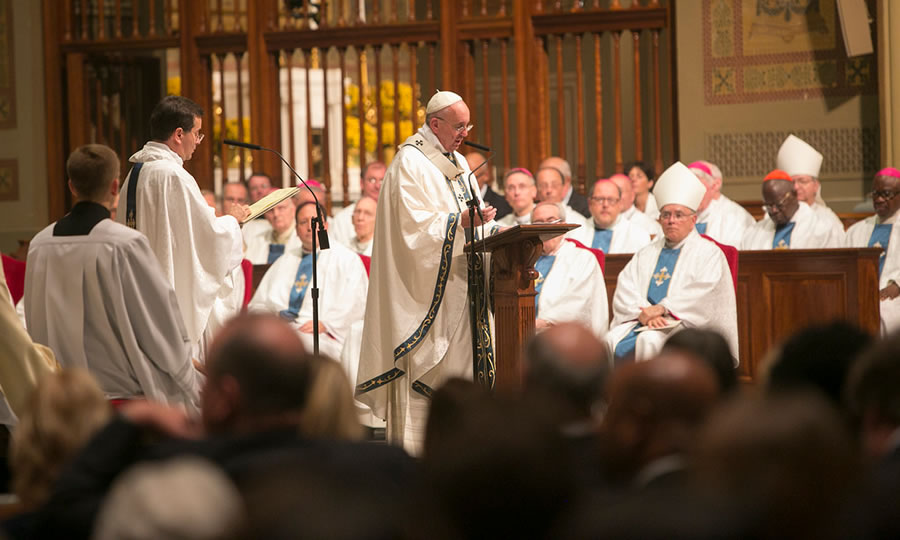
Papal Infallibility
11-08-2020Weekly ReflectionJen Arnold, M.A. in Theology and CatecheticsUnique to the Catholic Church is the role of the pope as head of the Church on earth. Thus, there are some common misunderstandings about his role and the Church’s teaching of papal infallibility. It is important to note that these misunderstandings have been around for a long time and are not just arising now. It is always worth refreshing our catechetical memories from time to time.
As we pronounce in the Creed, we say that our Church is apostolic, which means it is built on the “foundation of the Apostles,” since Christ chose them to be His first witnesses and teachers of the faith (CCC #857). The Church teaches that the twelve Apostles were the first bishops who went out and set up churches far and wide. We review the great commission:
And Jesus said to them, “All authority in heaven and on earth has been given to me. Go therefore and make disciples of all nations, baptizing them in the name of the Father and of the Son and of the Holy Spirit, teaching them to observe all that I have commanded you. And behold, I am with you always, to the end of the age.” (Matthew 28:18-20)
From Jesus’ words, we can extract certain things: 1) He is establishing them explicitly as teachers, 2) they have the power to do certain things per His authority, and 3) He will remain with the Church forever to help and guide her. We also know that later, on Pentecost, the Holy Spirit was sent as a guide and protector of the newly established Church and to empower the Apostles’ teaching office (Acts 2). Apostolic succession ensures that all bishops today can be traced back to the original Apostles.
READ MORE
Called to Holiness
11-01-2020Weekly ReflectionJen Arnold, M.A. in Theology and CatecheticsToday we celebrate the feast of All Saints and recognize and honor all the holy men and women who have come before us. Our Church gives us a gift in acknowledging the great saints who have left us their examples of how to be a follower of Jesus Christ with heroic virtue. We are not left on our own to navigate what it means to be a good disciple. Studying the saints can always inspire us to live out our Christian Faith in new ways.
As difficult as it may seem at times, we too are all called to be saints. We are all called to live a life of heroic virtue in imitation of Jesus. There is a wonderful document, called Lumen Gentium (Dogmatic Constitution of Christ), that came out of the Second Vatican Council. It outlines what the Church is and her role in the world. The chapter, “The Call to Holiness,” is dedicated to our role as laity since you and I are members of the Church. This is a universal call that applies to each one of us, regardless of our state in life. In other words, the call to holiness is not just for priests and religious, or other seemingly pious people, but to each and every one of us.
READ MORE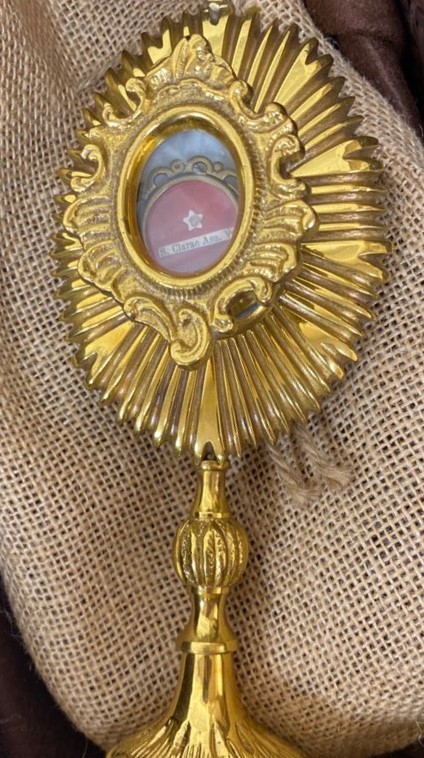
Relics
10-28-2020Weekly ReflectionJen Arnold, M.A. in Theology and CatecheticsThis week we have some exciting news to share! Recently, our parish’s Order of the Secular Franciscans was gifted a relic of St. Clare of Assisi, follower of St. Francis of Assisi and founder of the Order of the Poor Clares. The relic was gifted to a professed member of our parish Fraternity when, providentially, the original plans for its display elsewhere fell through. On Nov 1, the relic will be installed near the stained-glass representation of St. Clare (by the St. Joseph statue in the back of the church).
READ MORE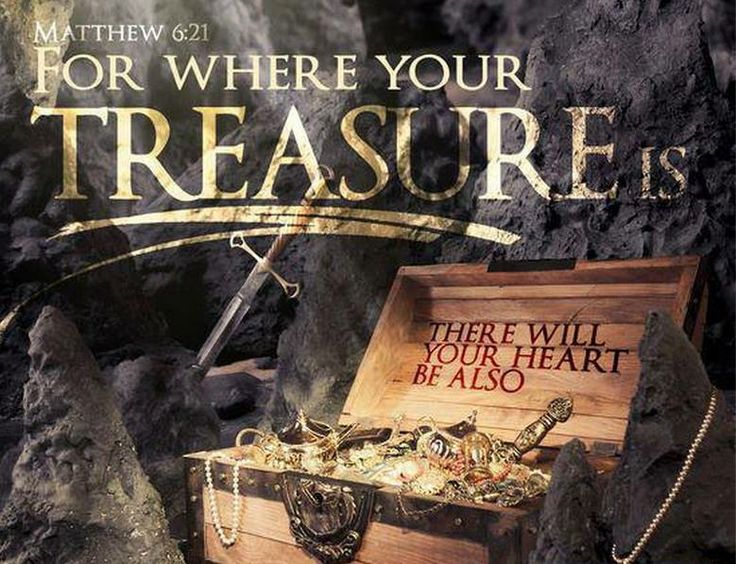
Stewardship of Treasure
10-25-2020Weekly ReflectionJen Arnold, M.A. in Theology and CatecheticsAs we conclude our discussion of Christian stewardship this week, we will take a brief look at our final gift to share, which is our treasure.
The mission of the Catholic Church and the reason for her existence is for the salvation of souls. As a member of the Catholic Church, you presumably believe in that mission and therefore have a share in it. On a smaller and more focused level, our parish shares in the same mission right here in our local community. We have ministries that provide opportunities for parishioners to grow information and discipleship. We have a beautiful Adoration chapel (hopefully soon to be open 24 hours again!) where everyone, not just parishioners, can go to seek refuge and solace with Jesus at the foot of the cross. We have a beautiful parish campus that our staff works hard to maintain as a beautiful, safe, and inviting environment for anyone to feel wanted and welcome. All of these things require our help through the gift of our tithing, not because we are obligated, but because we believe in the mission of our Church.
READ MORE
Stewardship of Talent
10-18-2020Weekly ReflectionJen Arnold, M.A. in Theology and CatecheticsContinuing with our reflection on Christian stewardship, this week we will take a closer look at how we can use the gift of our talents on our mission of discipleship in this life.
Remember last week we discussed Jesus’ great commission when he told his apostles to go and make disciples of all nations, and how that this call to action applies to us as well (Mt. 28:19). After a period of intentional, focused prayer, the Holy Spirit descended upon them and enabled them to speak many different languages so that they might use that gift in order to convert others to Christianity, which they did (Acts 2:1-41). The ability to speak to different groups of people was not something they sought out or worked to cultivate by their own human desire, but rather a gift of talent, freely given to them by God with an implied invitation to use the gift in their mission of creating disciples. You also have talents given to you by God, which He invites you to use for the good of His Kingdom on Earth.
READ MORE
Stewardship of Time
10-11-2020Weekly ReflectionJen Arnold, M.A. in Theology and CatecheticsOctober is a month in which we like to examine how we’ve utilized our gifts of time, talent, and treasure in serving God and others over the past year and decide how we might commit to growth in the coming year. Last year, you may recall, we filled out commitment forms detailing how we might be better Christian stewards in the coming year. Needless to say, the year did not go as any of us planned and it very likely impacted the commitments we made.
It is important to note that circumstances in life can always change, at any time, for any reason. Loss of employment, loss of a loved one, illness, and unexpected bills are all examples of things that can get lobbed at us, throwing us off course. Not one of us is promised anything in this life, particularly stability. Life is constantly in flux because that’s the nature of it. That being said, we can still plan, while remaining flexible and trusting that God has everything under control.
READ MORE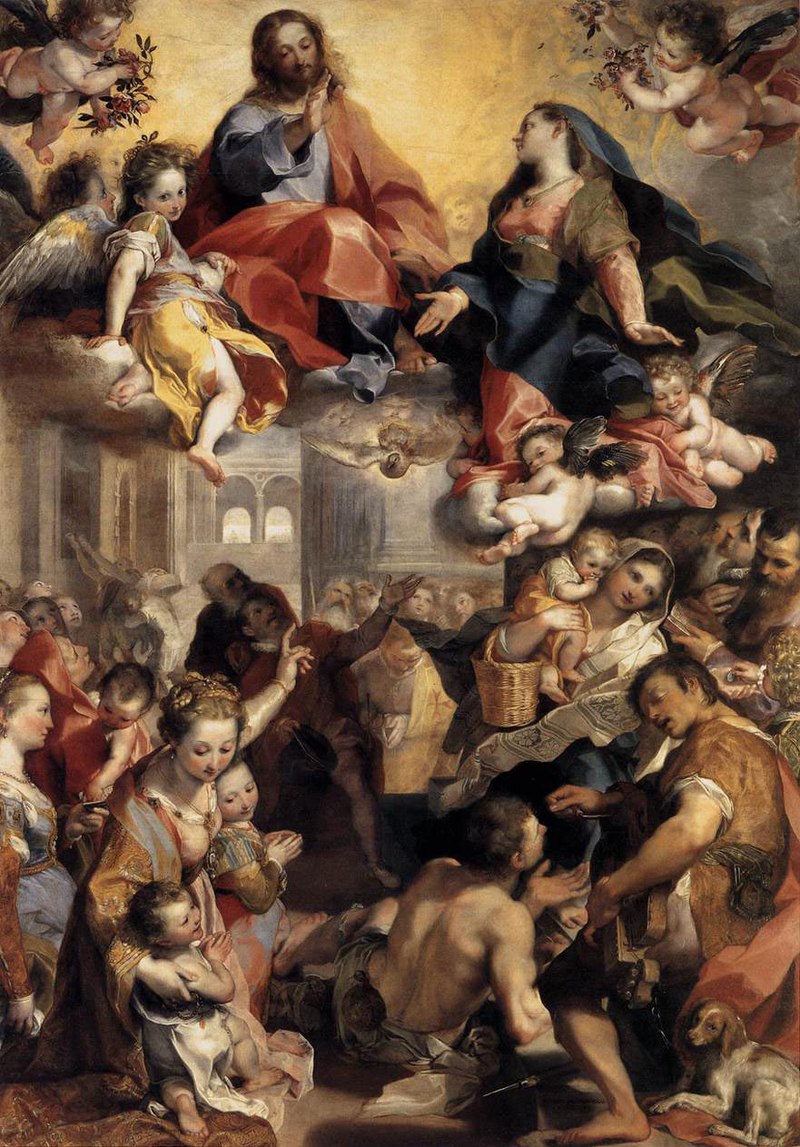
Mary's Spiritual Motherhood
10-04-2020Weekly ReflectionJen Arnold, M.A. in Theology and CatecheticsWe have now reached the fifth and final week of this Marian series. We covered the four Marian dogmas and will now conclude with the one doctrine which the Church teaches regarding our Blessed Mother. If you remember from the first week, the doctrine is to be held as true and a matter of our Faith to be believed, but it has not yet been elevated to the level of dogma, which could be for any number of reasons. This doctrine defines Mary’s spiritual motherhood over the Body of Christ through her three-fold role of co-redemptrix, mediatrix, and advocate. Generally, it makes sense that we should call Mary our own spiritual mother. After all, she gave physical birth to Jesus, who is the head of the mystical body, the Church. If we are all members of that mystical body, joined to the head, then, by extension, she’s a mother to the full-body, not simply just the head. In his encyclical Ad Diem Illum Laetissimum on the Immaculate Conception, Pope Pius X says:
READ MORE